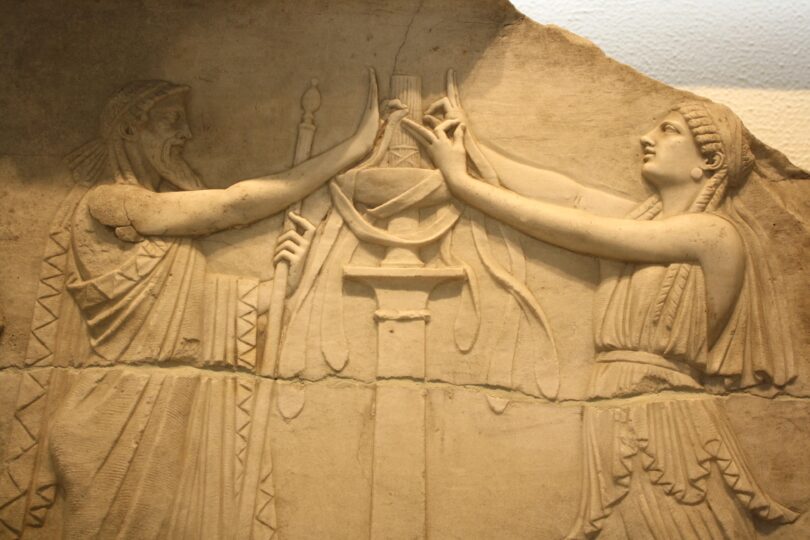As we delve into the study of ancient civilizations, it is imperative to take a critical approach to unravel the mysteries and complexities that shroud these societies. From deciphering ancient texts to examining archaeological findings, a meticulous assessment is essential in understanding the rise and fall of these enigmatic cultures. Through a rigorous examination of historical evidence, we strive to uncover the truths that lie buried beneath the sands of time. Join us as we embark on a journey of exploration and discovery, shedding light on the enigmatic past of our ancestors.
1. Understanding the Significance of Ancient Civilizations in Modern Society
Ancient civilizations play a crucial role in shaping modern society, leaving behind a rich legacy that influences various aspects of our lives today. By delving into the past, we can better understand the origins of certain cultural practices, societal norms, and even political structures that have endured through time. Exploring the complexities of ancient civilizations allows us to appreciate the diversity of human history and gain valuable insights into the evolution of human thought and behavior.
When we examine the commonalities and differences among ancient societal structures, we unearth a treasure trove of knowledge that helps us appreciate the intricacies of human organization. By studying the social hierarchies, economic systems, and religious beliefs prevalent in different ancient civilizations, we can draw parallels to our contemporary world and recognize how these historical frameworks continue to influence our present-day societies.
Through a critical assessment of the technological innovations of early cultures, we can grasp the profound impact these advancements had on the course of history. From the development of writing systems to the invention of tools and machinery, ancient civilizations laid the groundwork for technological progress that still shapes our modern way of life. By recognizing the ingenuity and resourcefulness of our ancestors, we gain a deeper appreciation for the advancements that have propelled us forward.
2. Investigating the Commonalities and Differences in Ancient Societal Structures
Ancient civilizations offer a wealth of knowledge about societal structures that have shaped the modern world. By delving into the commonalities and differences among these civilizations, we can gain a deeper understanding of the foundations upon which our societies are built. From the hierarchical structures of ancient Mesopotamia to the democratic principles of Ancient Greece, each civilization brings its unique perspective on governance and societal organization.
One key commonality among ancient societal structures is the presence of a ruling elite class that held power and influence over the rest of the population. However, the ways in which this power was exercised varied greatly from one civilization to another. While some societies relied on a centralized authority figure, others distributed power among various leaders or councils. Understanding these differences can shed light on the diverse approaches to governance throughout history.
Through a critical assessment of ancient societal structures, we can uncover valuable insights that can inform our understanding of contemporary society. By exploring the complexities and nuances of these civilizations, we can appreciate the rich tapestry of human history and the lessons it holds for us today.
3. Evaluating the Technological Innovations of Early Cultures: Impact and Influence
In delving into the technological innovations of early cultures, it becomes apparent that these advancements had a profound impact on the development and progression of societies. From the invention of writing systems to the creation of tools and irrigation systems, these innovations laid the groundwork for future civilizations to thrive. The influence of these technologies can still be seen today, as they continue to shape how we communicate, produce goods, and interact with our environment.
One cannot ignore the significance of these early technological marvels, as they not only improved the living standards of ancient civilizations but also paved the way for future inventions and advancements. By critically evaluating the impact and influence of these innovations, we gain a deeper understanding of the ingenuity and resourcefulness of early cultures. It is essential to acknowledge and appreciate the contributions of these societies to our modern world, as their innovations continue to shape our lives in ways we may not always realize.
4. Scrutinizing the Downfall of Ancient Civilizations: Causes and Effects
From the grandeur of empires like the Roman civilization to the mysterious decline of the Mayan society, the downfall of ancient civilizations continues to captivate historians and archaeologists alike. What were the root causes behind their demise, and what lasting effects did these collapses have on future societies?
Causes of Downfall:
- Environmental Degradation: Deforestation, soil erosion, and climate change played pivotal roles in the collapse of several ancient civilizations.
- Political Instability: In-fighting, corruption, and ineffective leadership weakened many empires from within.
- Economic Collapse: Trade disruptions, resource depletion, and unsustainable growth led to economic downfall for once-prosperous civilizations.
Effects of Downfall:
- Cultural Dissolution: Language, traditions, and beliefs were often lost or distorted in the aftermath of a civilization’s collapse.
- Power Shifts: The downfall of one civilization often paved the way for the rise of another, leading to geopolitical shifts of immense significance.
- Lessons Learned: Studying the downfall of ancient civilizations provides invaluable insights into the resilience and fragility of human societies throughout history.
5. Reframing History Education: Incorporating Insights from Ancient Civilizations
Ancient civilizations serve as the foundation of modern society, providing valuable insights into the origins of our current social, political, and cultural structures. By studying the achievements and failures of these early societies, we gain a deeper understanding of our own place in history and how past events continue to shape our world today.
Through a critical assessment of ancient civilizations, we can uncover the commonalities and differences in societal structures that have persisted throughout time. This comparative analysis allows us to recognize the patterns of human behavior and governance that transcend centuries, highlighting both the progress and shortcomings of our development as a global society.
Incorporating the lessons learned from ancient civilizations into history education is essential for enriching our understanding of the complexities of human history. By reframing our approach to historical studies, we can gain a more nuanced perspective on the interconnectedness of past and present, fostering a deeper appreciation for the enduring legacies of the ancient world.
Key Takeaways
In conclusion, a critical assessment of exploring ancient civilizations reveals both the strengths and limitations of our understanding of these complex societies. While significant advancements have been made in uncovering their history, we must continue to approach this field with caution and skepticism. By critically evaluating the evidence and theories presented, we can strive towards a more comprehensive understanding of the ancient past. It is imperative that we constantly reassess our interpretations and strive for a more nuanced understanding of the complexities of ancient civilizations. Through rigorous examination and analysis, we can continue to uncover the truths of these mysterious and fascinating societies.








Leave a Comment